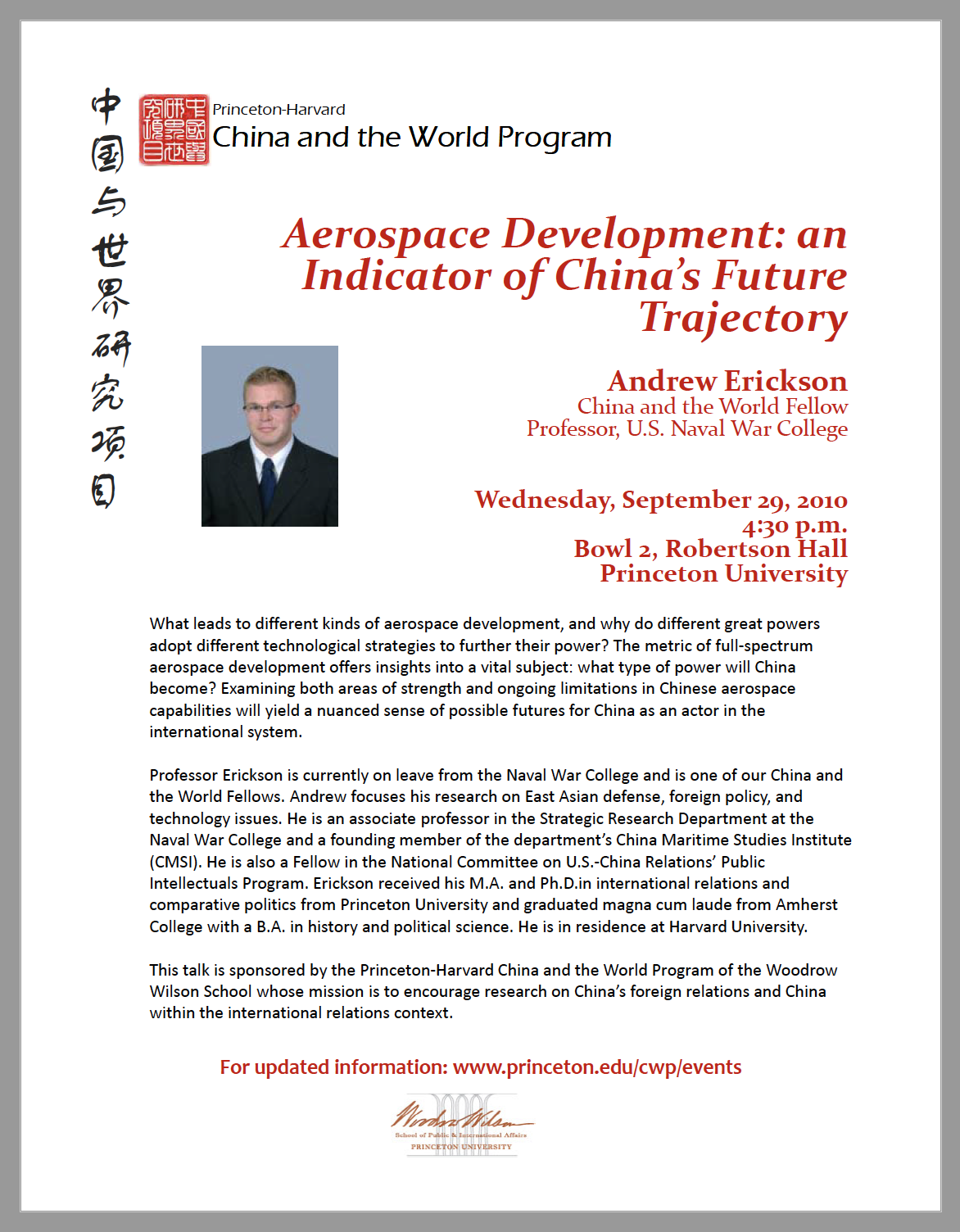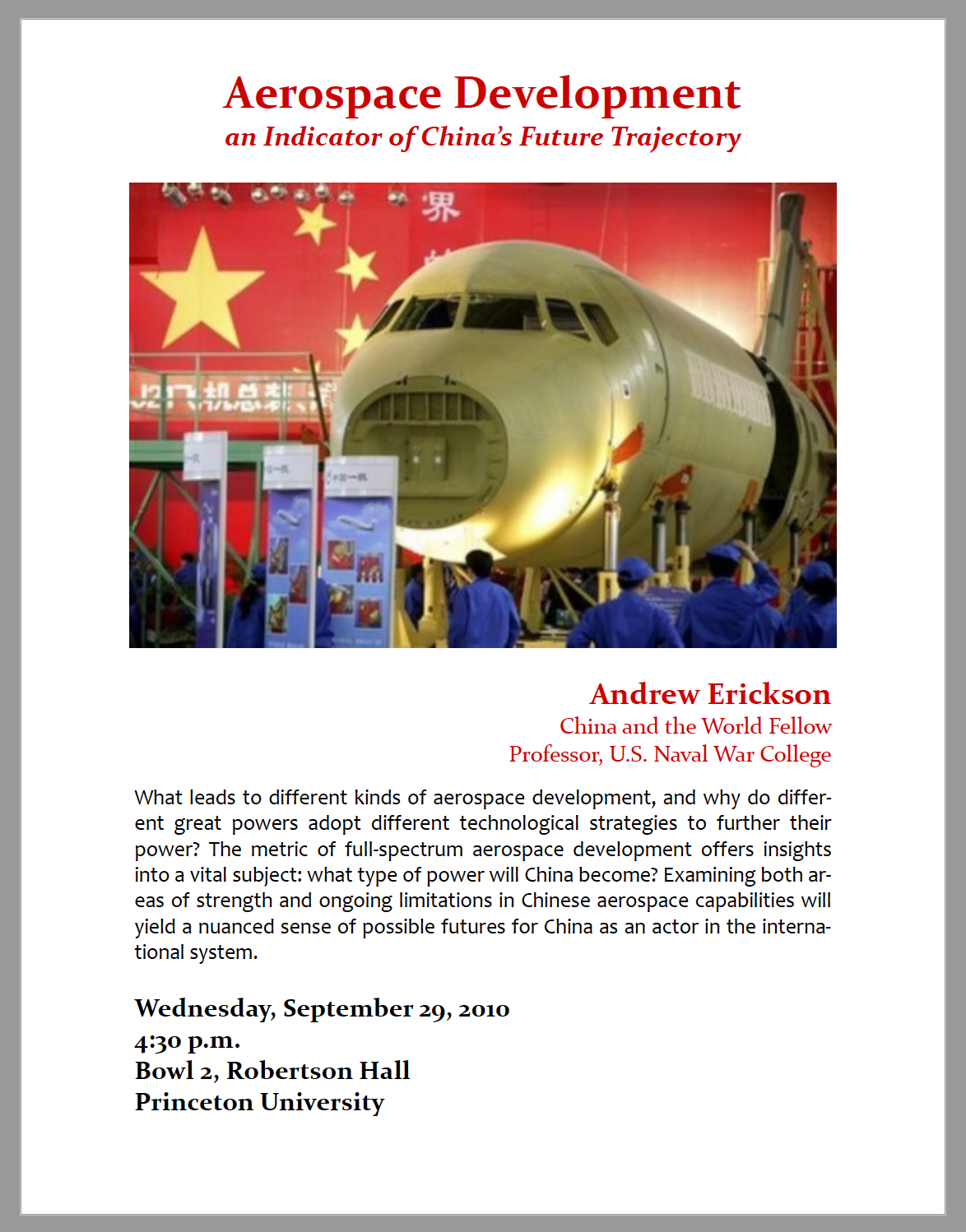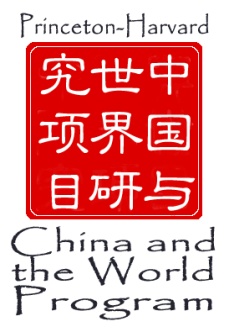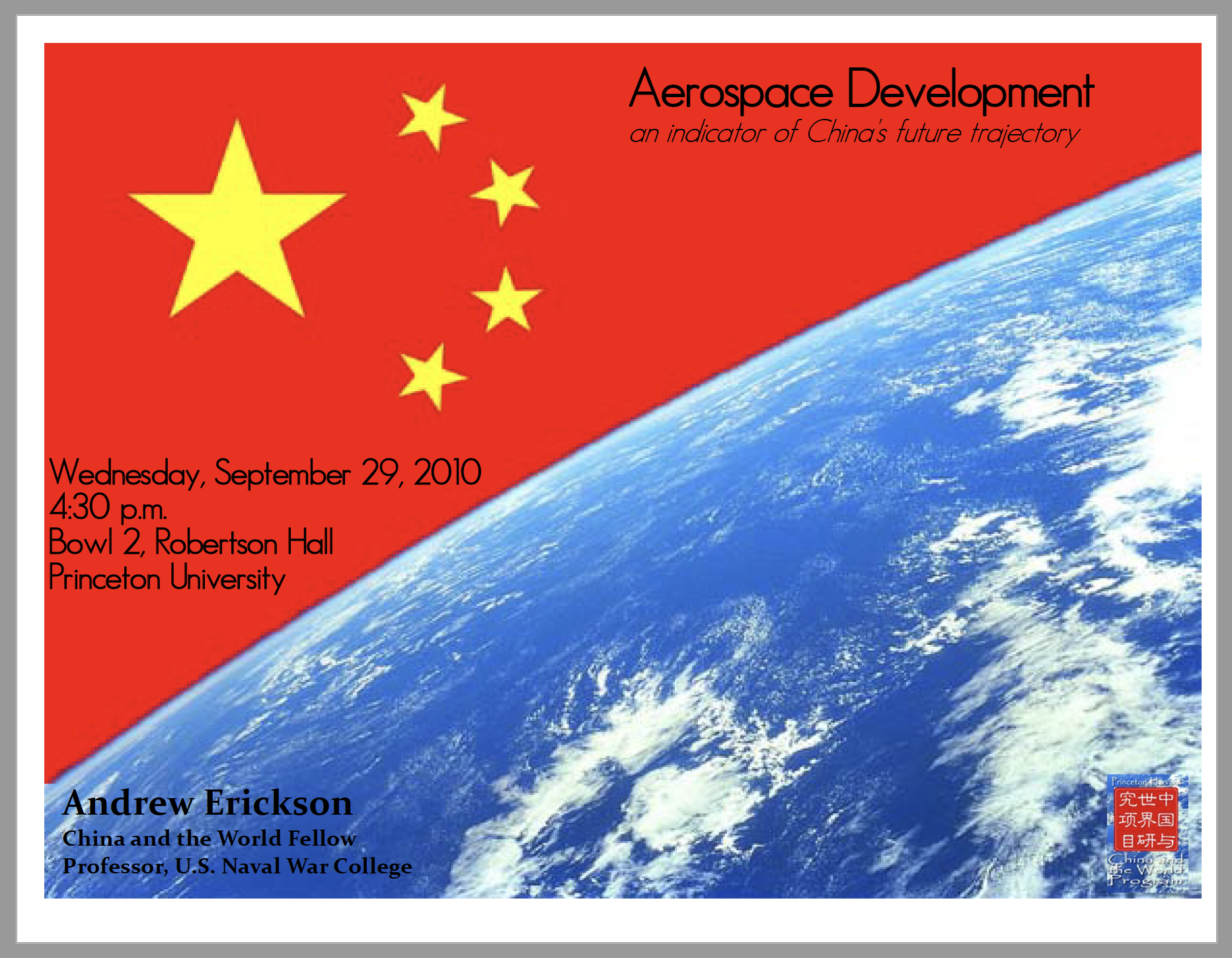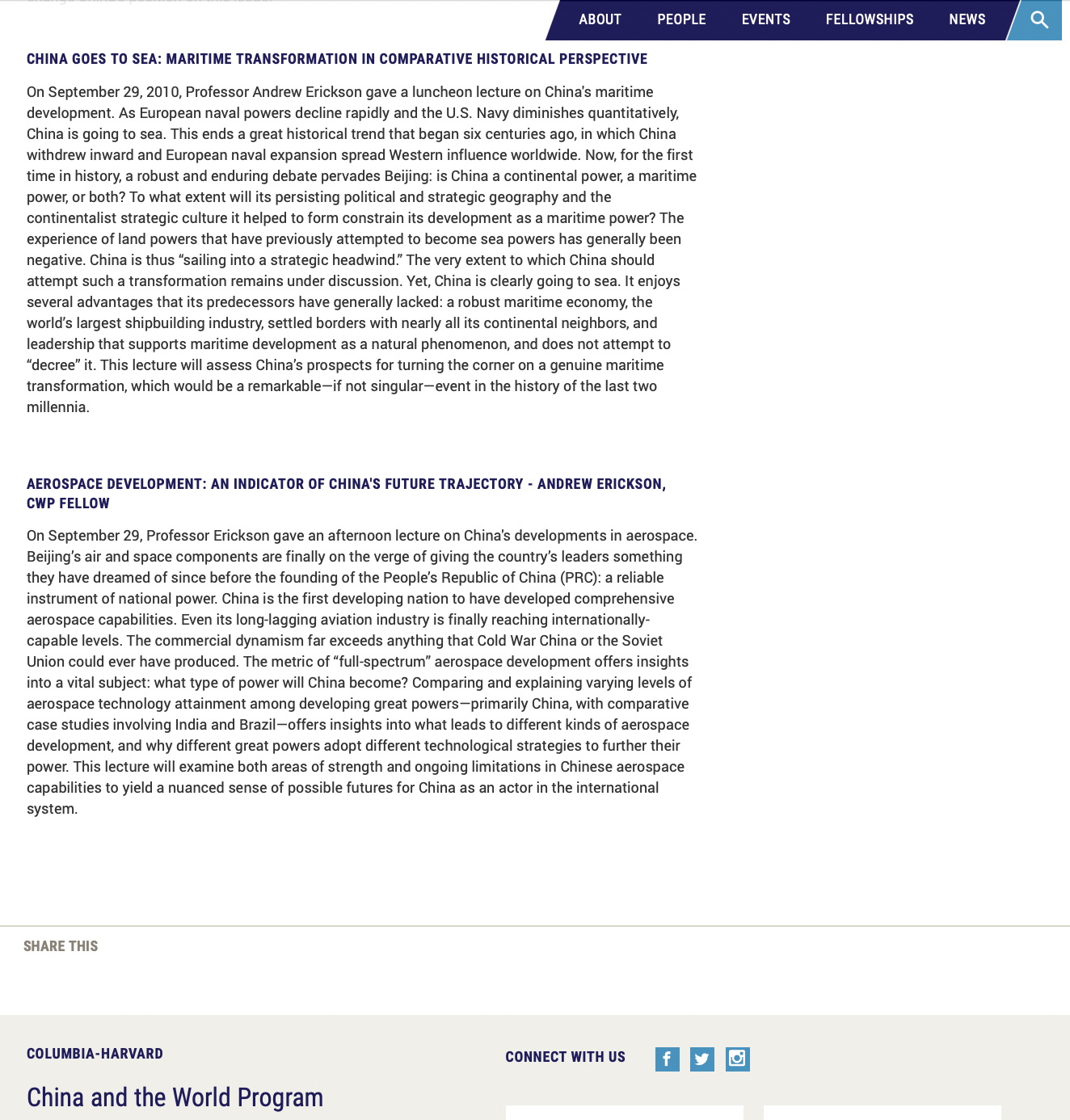Presented on “Aerospace Development” & “China Goes to Sea” for Princeton-Harvard China & the World Program
Andrew S. Erickson, “Aerospace Development: an Indicator of China’s Future Trajectory” and “China Goes to Sea: Maritime Transformation in Comparative Historical Perspective,” presented through Princeton-Harvard China and the World Program at Princeton University, Princeton, NJ, 29 September 2010.
CHINA GOES TO SEA: MARITIME TRANSFORMATION IN COMPARATIVE HISTORICAL PERSPECTIVE
On September 29, 2010, Professor Andrew Erickson gave a luncheon lecture on China’s maritime development. As European naval powers decline rapidly and the U.S. Navy diminishes quantitatively, China is going to sea. This ends a great historical trend that began six centuries ago, in which China withdrew inward and European naval expansion spread Western influence worldwide. Now, for the first time in history, a robust and enduring debate pervades Beijing: is China a continental power, a maritime power, or both? To what extent will its persisting political and strategic geography and the continentalist strategic culture it helped to form constrain its development as a maritime power? The experience of land powers that have previously attempted to become sea powers has generally been negative. China is thus “sailing into a strategic headwind.” The very extent to which China should attempt such a transformation remains under discussion. Yet, China is clearly going to sea. It enjoys several advantages that its predecessors have generally lacked: a robust maritime economy, the world’s largest shipbuilding industry, settled borders with nearly all its continental neighbors, and leadership that supports maritime development as a natural phenomenon, and does not attempt to “decree” it. This lecture assessed China’s prospects for turning the corner on a genuine maritime transformation, which would be a remarkable—if not singular—event in the history of the last two millennia.
AEROSPACE DEVELOPMENT: AN INDICATOR OF CHINA’S FUTURE TRAJECTORY – ANDREW ERICKSON, CWP FELLOW
On September 29, Professor Erickson gave an afternoon lecture on China’s developments in aerospace. Beijing’s air and space components are finally on the verge of giving the country’s leaders something they have dreamed of since before the founding of the People’s Republic of China (PRC): a reliable instrument of national power. China is the first developing nation to have developed comprehensive aerospace capabilities. Even its long-lagging aviation industry is finally reaching internationally-capable levels. The commercial dynamism far exceeds anything that Cold War China or the Soviet Union could ever have produced. The metric of “full-spectrum” aerospace development offers insights into a vital subject: what type of power will China become? Comparing and explaining varying levels of aerospace technology attainment among developing great powers—primarily China, with comparative case studies involving India and Brazil—offers insights into what leads to different kinds of aerospace development, and why different great powers adopt different technological strategies to further their power. This lecture will examine both areas of strength and ongoing limitations in Chinese aerospace capabilities to yield a nuanced sense of possible futures for China as an actor in the international system.
“Aerospace Development: an Indicator of China’s Future Trajectory”
Wednesday, September 29, 2010
4:30 pm
Bowl 2, Robertson Hall
Please join us for a lecture by Andrew Erickson, Professor Naval War College and CWP Fellow.
What leads to different kinds of aerospace development, and why do different great powers adopt different technological strategies to further their power? The metric of full-spectrum aerospace development offers insights into a vital subject: what type of power will China become? Examining both areas of strength and ongoing limitations in Chinese aerospace capabilities will yield a nuanced sense of possible futures for China as an actor in the international system.
Professor Erickson is currently on leave from the Naval War College and is one of our China and the World Fellows. Andrew focuses his research on East Asian defense, foreign policy, and technology issues. He is an associate professor in the Strategic Research Department at the Naval War College and a founding member of the department’s China Maritime Studies Institute (CMSI). He is also a Fellow in the National Committee on U.S.-China Relations’ Public Intellectuals Program. Erickson received his M.A. and Ph.D. in international relations and comparative politics from Princeton University and graduated magna cum laude from Amherst College with a B.A. in history and political science. He is in residence at Harvard University.
This talk is sponsored by the Princeton-Harvard China and the World Program of the Woodrow Wilson School whose mission is to encourage research on China’s foreign relations and China within the international relations context.

